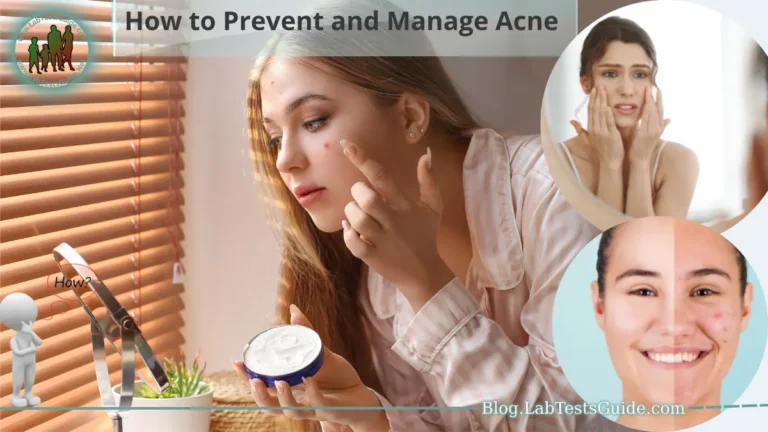The common cold and flu are widespread respiratory illnesses that affect millions of people worldwide each year. While they may seem like minor inconveniences, they can cause significant disruptions to daily life, leading to missed school or work days and general discomfort. Moreover, in certain vulnerable populations, such as the elderly, young children, and those with weakened immune systems, these seemingly benign illnesses can lead to severe complications and even be life-threatening. The good news is that many cases of colds and flu can be prevented through simple yet effective measures, and this guide aims to provide you with valuable insights and practical tips on how to safeguard yourself and others from falling victim to these viral infections.

In this guide, we will explore a range of preventive strategies that can help reduce your risk of catching the common cold and flu. From practicing good hygiene, such as proper handwashing and coughing etiquette, to adopting lifestyle habits that boost your immune system, we will delve into the various aspects of prevention.
What is the Common Cold and Flu?
Common Cold:
- The common cold is a mild viral infection that primarily affects the upper respiratory tract, including the nose and throat.
- It is caused by various strains of rhinoviruses, coronaviruses, and other respiratory viruses.
- Symptoms typically include a runny or stuffy nose, sneezing, sore throat, coughing, mild headache, and sometimes a low-grade fever.
- The common cold is highly contagious and spreads through respiratory droplets when an infected person coughs or sneezes.
Influenza (Flu):
- Influenza, commonly known as the flu, is a more severe respiratory illness caused by influenza viruses.
- There are different types of influenza viruses, including influenza A, B, C, and subtypes within each type.
- Flu symptoms are more intense than the common cold and may include high fever, chills, body aches, fatigue, headache, cough, and a sore throat.
- Like the common cold, the flu spreads through respiratory droplets and is highly contagious.
Similarities and Differences:
- Both the common cold and flu are viral infections affecting the respiratory system, but the flu is usually more severe and can lead to complications such as pneumonia.
- The incubation period for the common cold is typically shorter (1-3 days) compared to the flu (1-4 days).
- While both infections can occur year-round, the flu is more prevalent during the fall and winter months, whereas the common cold can occur throughout the year.
- Vaccines are available to protect against the flu, but there is no specific vaccine for the common cold due to its numerous viral causes.
How to Prevent Common Cold and Flu:
- Wash hands frequently with soap and water: Washing your hands with soap and water for at least 20 seconds helps remove germs and viruses that you may have picked up from touching surfaces or interacting with others. It is a simple yet effective way to prevent the spread of infections.
- Cover mouth and nose when coughing or sneezing: When you cough or sneeze, respiratory droplets containing viruses can be expelled into the air. By covering your mouth and nose with a tissue or your elbow, you can prevent these droplets from spreading to others.
- Avoid touching eyes, nose, and mouth: Viruses can enter your body through your eyes, nose, and mouth. Avoiding touching these areas with unwashed hands reduces the risk of introducing the virus into your system.
- Eat a balanced diet and stay hydrated: A healthy diet rich in fruits, vegetables, whole grains, and lean proteins provides essential nutrients that support your immune system, making it better equipped to fight off infections. Staying hydrated also helps maintain optimal bodily functions.
- Engage in regular physical activity: Regular exercise can improve overall health, boost immunity, and reduce the risk of chronic diseases, making your body more resilient against infections.
- Get enough sleep and rest: Sufficient sleep and rest are vital for maintaining a healthy immune system. Restorative sleep allows your body to repair and defend against infections.
- Clean and disinfect frequently touched surfaces: Commonly touched surfaces, such as doorknobs, light switches, and electronics, can harbor viruses. Regular cleaning and disinfection help reduce the presence of germs on these surfaces.
- Ensure proper ventilation in enclosed spaces: Proper ventilation helps disperse airborne particles, including viruses, reducing the concentration of infectious agents indoors.
- Avoid close contact with sick individuals: Viruses spread through respiratory droplets when infected individuals cough or sneeze. Avoiding close contact with sick people minimizes the risk of exposure to these droplets.
- Get vaccinated for the flu: Annual flu vaccination provides protection against common strains of the influenza virus, reducing the severity and duration of the flu if you do contract it.
Causes of Cold and Flu:
- Viral Infections: Both the common cold and flu are caused by viral infections. The common cold is typically caused by rhinoviruses, while the flu is primarily caused by influenza viruses. There are multiple strains and variations of these viruses, making them difficult to develop complete immunity against.
- Transmission through Respiratory Droplets: The viruses responsible for cold and flu are highly contagious and spread through respiratory droplets. When an infected person coughs, sneezes, or talks, tiny droplets containing the virus are released into the air. These droplets can be inhaled by others or land on surfaces, leading to further transmission.
- Direct Contact with Contaminated Surfaces: Touching surfaces or objects contaminated with the cold or flu virus can transfer the virus to your hands. If you then touch your eyes, nose, or mouth, the virus can enter your body and cause infection.
- Close Contact with Infected Individuals: Being in close proximity to someone who is already infected with the cold or flu increases the risk of contracting the virus. This is especially true if the infected person is actively coughing or sneezing.
- Seasonal Variability: The common cold and flu are more prevalent during certain seasons, typically fall and winter in temperate regions. Cold weather may contribute to the spread of these viruses as people tend to spend more time indoors in close proximity to others.
- Weakened Immune System: If your immune system is weakened due to factors such as stress, lack of sleep, or other illnesses, you may be more susceptible to catching the cold or flu.
- Lack of Immunity or Previous Exposure: New strains of viruses or those to which you have not been previously exposed may result in a higher likelihood of infection as your immune system has not built up immunity against them.
Hygiene Practices:
- Handwashing: Regularly washing your hands with soap and water for at least 20 seconds is one of the most effective ways to prevent the spread of cold and flu viruses. Proper handwashing removes germs from your hands and reduces the risk of transferring viruses to your face or other surfaces.
- Hand Sanitizers: When soap and water are not readily available, using alcohol-based hand sanitizers with at least 60% alcohol content can be an alternative for disinfecting your hands and killing germs.
- Coughing and Sneezing Etiquette: Cover your mouth and nose with a tissue or your elbow when coughing or sneezing. This practice helps contain respiratory droplets that may carry viruses and prevents them from spreading to others.
- Avoid Touching Your Face: Refrain from touching your eyes, nose, and mouth with unwashed hands. Viruses can enter your body through these areas, so keeping hands away from your face reduces the risk of infection.
- Cleaning and Disinfecting: Regularly clean and disinfect frequently touched surfaces, such as doorknobs, light switches, remote controls, and electronic devices. Disinfectants help kill germs lingering on surfaces and reduce the chances of virus transmission.
- Avoid Close Contact with Sick Individuals: If someone around you has a cold or flu, try to maintain a safe distance from them to lower the risk of coming into contact with their respiratory droplets.
- Personal Protective Equipment (PPE): Wearing masks can be helpful in preventing the spread of respiratory droplets when you are in close contact with others or in crowded settings. Properly fitted masks can protect both yourself and those around you.
- Stay Home When Sick: If you develop cold or flu symptoms, such as fever, cough, or body aches, it’s essential to stay home and avoid close contact with others to prevent further spread of the virus.
- Proper Disposal of Tissues: After using tissues, dispose of them in a closed bin immediately. Avoid leaving used tissues lying around as they can harbor viruses.
- Hygiene in Public Places: When using public facilities, such as bathrooms or communal spaces, maintain good hygiene practices and avoid touching surfaces as much as possible.
Boosting Your Immune System:
- A Balanced Diet: Consuming a well-balanced diet rich in fruits, vegetables, whole grains, lean proteins, and healthy fats provides essential nutrients that support the immune system. Nutrients like vitamins A, C, D, and zinc play crucial roles in immune function.
- Staying Hydrated: Drinking plenty of water helps maintain the proper functioning of the immune system and ensures optimal bodily functions.
- Regular Exercise: Engaging in moderate physical activity, such as walking, jogging, or cycling, can enhance immune function and reduce the risk of chronic illnesses, making your body more resilient to infections.
- Sufficient Sleep and Rest: Getting enough sleep and rest is vital for the body to repair and regenerate, as well as to support immune system function. Aim for 7-9 hours of quality sleep each night.
- Manage Stress: Chronic stress can weaken the immune system, making you more susceptible to infections. Practice stress-reducing techniques like meditation, yoga, deep breathing, or spending time in nature.
- Avoid Smoking and Limit Alcohol: Smoking and excessive alcohol consumption can impair the immune system’s ability to function effectively. Minimize or avoid these habits to support your immune health.
- Probiotics and Gut Health: A healthy gut plays a crucial role in immune function. Including probiotic-rich foods like yogurt, kefir, sauerkraut, and kimchi can promote a balanced gut microbiome.
- Moderate Sun Exposure: Vitamin D, which is produced by the body when exposed to sunlight, is essential for a robust immune system. Spend time outdoors to maintain adequate vitamin D levels.
- Avoid Overuse of Antibiotics: Unnecessary or improper use of antibiotics can weaken the immune system by disrupting the balance of beneficial bacteria in the body.
- Stay Up to Date with Immunizations: Vaccinations provide essential protection against various infectious diseases, including the flu. Keep up with recommended immunizations to bolster your immunity.
- Stay Hygienic: Maintain good hygiene practices to prevent exposure to harmful pathogens and reduce the risk of infections.
- Herbal Supplements: Some herbal supplements, like echinacea and elderberry, are believed to support the immune system, but consult with a healthcare professional before adding them to your regimen.
Environmental Precautions:
- Cleaning and Disinfecting Frequently Touched Surfaces: Regularly clean and disinfect commonly touched surfaces in your home and workplace, such as doorknobs, light switches, remote controls, and shared electronics. This reduces the presence of germs and viruses on surfaces, lowering the risk of transmission.
- Indoor Air Quality and Ventilation: Ensure proper ventilation in enclosed spaces, especially during the cold and flu seasons. Proper ventilation helps disperse airborne particles, including viruses, and improves indoor air quality.
- Air Purifiers: Consider using air purifiers with HEPA filters to help remove airborne particles, including viruses and bacteria, from indoor air. Air purifiers can be particularly beneficial in areas with limited ventilation or high levels of air pollution.
- Limiting Exposure in Crowded Places: Avoid spending extended periods in crowded or poorly ventilated places, especially during peak cold and flu seasons. Crowded spaces increase the likelihood of coming into contact with infected individuals or contaminated surfaces.
- Hand Sanitizer Stations: In public places, such as schools, offices, and businesses, providing hand sanitizer stations encourages visitors and employees to practice hand hygiene, reducing the risk of virus transmission.
- Sick Leave Policies: Encourage and support sick leave policies in workplaces and educational institutions. Allowing sick individuals to stay home when they are unwell prevents the spread of viruses to others.
- Social Distancing: During flu outbreaks or when cold and flu are prevalent, practice social distancing to minimize close contact with others. Maintaining a safe distance reduces the risk of respiratory droplets reaching you from infected individuals.
- Educational Programs and Awareness: Promote educational programs and awareness campaigns to inform the public about the importance of preventive measures for cold and flu. This can include information on handwashing, cough etiquette, and vaccination.
- Personal Protective Equipment (PPE): Encourage the use of masks and other appropriate personal protective equipment in high-risk settings or when close contact with others is unavoidable.
- Enhanced Cleaning Practices in Public Spaces: Public spaces, such as schools, hospitals, and public transportation, should implement enhanced cleaning and disinfection protocols to maintain a hygienic environment.
Vaccination:
- Flu Vaccination: Annual flu vaccination is a highly effective way to protect against the influenza virus. Flu vaccines are formulated to target the most prevalent strains of the virus each season. By getting vaccinated, you can reduce the risk of contracting the flu and its potential complications.
- Timing of Flu Vaccination: It is recommended to get the flu vaccine before the flu season starts, typically in the fall. Getting vaccinated early allows your body time to build immunity before flu activity increases in your community.
- Who Should Get Vaccinated: The Centers for Disease Control and Prevention (CDC) recommends flu vaccination for everyone aged six months and older, with few exceptions. Certain high-risk groups, such as young children, elderly individuals, pregnant women, and people with certain medical conditions, are particularly encouraged to get vaccinated.
- Effectiveness of Flu Vaccines: While the effectiveness of the flu vaccine can vary from year to year, it remains a critical tool in preventing the flu and its severe complications. Even if you still get infected after vaccination, the vaccine can reduce the severity and duration of the illness.
- Herd Immunity: Widespread vaccination can contribute to herd immunity, protecting vulnerable individuals who cannot receive vaccines due to medical reasons. Herd immunity helps limit the spread of the virus in communities.
- Side Effects of Vaccination: Flu vaccines are generally safe, and the most common side effects are mild and temporary, such as soreness at the injection site or mild flu-like symptoms. Serious side effects are rare.
- Other Vaccines: In addition to the flu vaccine, other vaccines, such as pneumococcal and pertussis vaccines, may be recommended for certain individuals to protect against other respiratory infections and their complications.
- Vaccination for Travel: Travelers should check for recommended vaccinations specific to their destinations to protect against other infectious diseases.
- Medical Advice: Consult with your healthcare provider to determine which vaccines are appropriate for you based on your age, health status, and risk factors.
- Public Health Importance: Vaccination is not only essential for individual protection but also crucial for public health. Widespread vaccination reduces the burden on healthcare systems during flu outbreaks and helps control the spread of contagious diseases.
Personal Protection:
- Hand Hygiene: Wash your hands frequently with soap and water for at least 20 seconds, especially after coughing, sneezing, using the restroom, or being in public places. If soap and water are not available, use alcohol-based hand sanitizers with at least 60% alcohol.
- Mask-Wearing: Wear masks, especially in crowded or high-risk settings, to reduce the transmission of respiratory droplets and protect yourself and others from cold and flu viruses.
- Cough and Sneezing Etiquette: Cover your mouth and nose with a tissue or your elbow when coughing or sneezing to prevent the spread of respiratory droplets. Dispose of used tissues properly and wash your hands immediately.
- Avoid Touching Your Face: Refrain from touching your eyes, nose, and mouth to minimize the risk of introducing viruses into your body.
- Maintain Physical Distancing: Practice social distancing and maintain a safe distance (about 6 feet) from others, especially if they are showing signs of illness.
- Stay Home When Sick: If you develop cold or flu symptoms, such as fever, cough, or body aches, stay home and avoid close contact with others to prevent further spread of the virus.
- Avoid Close Contact with Sick Individuals: Steer clear of visibly sick people or those experiencing cold or flu-like symptoms to minimize the risk of exposure.
- Improve Indoor Air Quality: Ensure proper ventilation in enclosed spaces to reduce the concentration of airborne viruses. Consider using air purifiers with HEPA filters to help remove particles from the air.
- Personal Disinfecting Wipes: Carry disinfecting wipes and use them to clean frequently touched surfaces, such as doorknobs, light switches, and electronic devices when in public places.
- Boost Immune System: Maintain a healthy lifestyle by eating a balanced diet, staying hydrated, getting regular exercise, managing stress, and getting enough sleep to support your immune system’s function.
- Vaccination: Get vaccinated for the flu annually to protect yourself and others from the seasonal influenza virus.
- Stay Informed: Stay updated with information from reliable sources and follow guidance from public health authorities on preventive measures and recommended vaccinations.
When to Seek Medical Attention:
Here are some situations when seeking medical attention is recommended.
- High Fever: If you have a fever of 100.4°F (38°C) or higher, especially if it persists for more than a couple of days, seek medical attention. High fever can be a sign of a more severe infection or complications.
- Severe Symptoms: If your cold or flu symptoms are severe and not improving with home remedies, or if they worsen over time, consult a healthcare professional. Severe symptoms may include intense body aches, difficulty breathing, persistent chest pain, or severe headache.
- Difficulty Breathing: If you experience shortness of breath, rapid breathing, or any difficulty breathing, seek immediate medical attention, as it may indicate a more serious respiratory condition.
- Persistent Cough: A persistent or worsening cough that lasts for more than a week should be evaluated by a healthcare provider, as it could be a sign of a more significant respiratory issue.
- Underlying Health Conditions: If you have a pre-existing medical condition, such as asthma, diabetes, heart disease, or a weakened immune system, it’s essential to seek medical advice if you develop cold or flu symptoms, as you may be at higher risk for complications.
- Dehydration: Severe vomiting, diarrhea, or a significant decrease in fluid intake can lead to dehydration. If you are unable to keep fluids down or experience signs of dehydration (e.g., dry mouth, reduced urine output, dizziness), seek medical attention.
- Infants and Young Children: If infants or young children exhibit cold or flu symptoms, it’s essential to consult a pediatrician, as they are more vulnerable to complications from viral infections.
- Persistent Pain or Pressure in the Chest: Any persistent pain or pressure in the chest should be evaluated promptly to rule out any serious cardiac or respiratory conditions.
- Worsening Overall Health: If you notice a decline in your overall health or experience unusual symptoms in addition to those commonly associated with cold or flu, seek medical attention for proper evaluation and diagnosis.
- Exposure to Confirmed Cases: If you have been in close contact with someone who has tested positive for influenza or another contagious respiratory illness, it’s important to consult a healthcare professional to assess your risk and potential need for testing or preventive measures.
FAQs:
What is the difference between the common cold and the flu?
The common cold and flu are both viral respiratory illnesses, but they are caused by different viruses. While they share some symptoms like a runny or stuffy nose and cough, the flu tends to cause more severe symptoms, including high fever, body aches, fatigue, and headaches.
How long does it take to recover from a cold or flu?
Recovery time can vary depending on the individual and the severity of the illness. Generally, cold symptoms may improve within a week, while the flu may take up to two weeks or more for a full recovery.
Can you get the flu from a flu vaccine?
No, you cannot get the flu from a flu vaccine. Flu vaccines contain either inactivated virus or a weakened form of the virus that cannot cause the flu. It is possible to experience mild side effects like soreness at the injection site, but these are not symptoms of the flu.
When is the best time to get a flu vaccine?
The best time to get a flu vaccine is before the flu season begins, typically in the fall. It takes about two weeks for the body to develop immunity after vaccination.
Can antibiotics treat cold or flu?
No, antibiotics are not effective against viral infections like the cold and flu. Antibiotics only work against bacterial infections. Cold and flu are caused by viruses, and supportive care is usually recommended for symptom relief.
Is the flu more dangerous for certain populations?
Yes, certain populations are at higher risk of developing severe flu complications, including young children, elderly individuals, pregnant women, people with chronic medical conditions, and those with weakened immune systems.
Are there any home remedies to relieve cold and flu symptoms?
Yes, some home remedies may help relieve cold and flu symptoms. These include staying hydrated, getting plenty of rest, using a humidifier to ease congestion, gargling with warm saltwater, and consuming warm beverages to soothe a sore throat.
How can I protect others from getting sick if I have a cold or flu?
If you have a cold or flu, you can protect others by practicing good hygiene, such as covering your mouth and nose when coughing or sneezing, frequently washing your hands, and avoiding close contact with others.
Can you still get the flu even after getting vaccinated?
Yes, it is possible to get the flu after getting vaccinated. However, flu vaccines are designed to reduce the severity and duration of the illness. Additionally, vaccination helps protect against other strains of the flu virus that may circulate during the flu season.
Conclusion:
In conclusion, preventing the common cold and flu requires a combination of personal hygiene practices, environmental precautions, and vaccination. By maintaining good hand hygiene, covering coughs and sneezes, avoiding touching the face, and cleaning frequently touched surfaces, individuals can reduce the risk of virus transmission. Improving indoor air quality, wearing masks in crowded settings, and staying informed about health guidelines further contribute to a safer environment. Annual flu vaccination is a critical measure to protect against influenza and promote overall public health. Knowing when to seek medical attention for severe symptoms or high-risk situations ensures timely diagnosis and appropriate care. By adopting these preventive measures, individuals can proactively safeguard their health and that of their communities, minimizing the impact of cold and flu infections.






